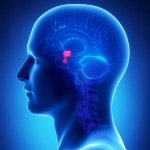
Caroline De Brun highlights the Psymaptic epidemiological prediction tool, which helps commissioners make evidence-based decisions about mental health service provision, specifically early intervention in psychosis.
[read the full story...]
Caroline De Brun highlights the Psymaptic epidemiological prediction tool, which helps commissioners make evidence-based decisions about mental health service provision, specifically early intervention in psychosis.
[read the full story...]
Eleanor Kennedy writes her debut blog on a recent case-control study of people in South London, which explores the links between first-episode psychosis and the use of high potency cannabis (skunk).
[read the full story...]
Andrew Shepherd explores the complex issue of families seeking help for first episode psychosis, investigated by researchers in a recent family narrative study, which concludes that help seeking attempts are often derailed by complex family responses to illness.
[read the full story...]
Joe Judge appraises a recent systematic review and meta-analysis looking at the duration of untreated psychosis as a predictor of long-term outcomes in schizophrenia.
[read the full story...]
Stephen Wood summarises a recent cluster RCT of vocational rehabilitation in early psychosis, which finds that early intervention services need to do more to help young people with psychosis return to work.
[read the full story...]
It is well documented that there are differences in how patients are treated, depending on their ethnicity. Previous inquiries in the UK have suggested that the NHS is institutionally racist (Blofeld et al, 2003). Some groups, for example those from African Caribbean or Aboriginal descent, experience more coercive care and poor outcomes, including higher doses of [read the full story…]

While the organisation’s name may change frequently, currently National Institute for Health and Care Excellence (NICE), its role remains constant – to provide clear published guidance on the role of treatment options within the NHS. The publication of new NICE guidance represents a significant event as clinical recommendations shape the nature of provided care nationally [read the full story…]

The support of individuals with experience of psychosis is complex and relies on a combination of psychopharmacology (antipsychotic drugs), psychological therapies and social interventions. Antipsychotics will often be the first line treatment offered, with the intention of reducing psychotic symptom burden. Following the resolution of immediate symptoms the role of antipsychotics becomes less clear; should [read the full story…]

* Declaration; I have published articles with two of the authors of this article, including on this topic, and know most of them professionally One influential model of the onset of psychotic disorders such as schizophrenia is the stress-vulnerability model, first put forward by Zubin and Spring in 1977. This model proposes that people at [read the full story…]

A first episode of psychosis is a higher risk time for acts of self-harm and of violence, and a chance to engage people, modify risk factors and change outcomes. Two related meta-analyses by Large, Neilssen and Challis are presented in a letter in the Australian and New Zealand Journal of Psychiatry. They summarise two studies [read the full story…]